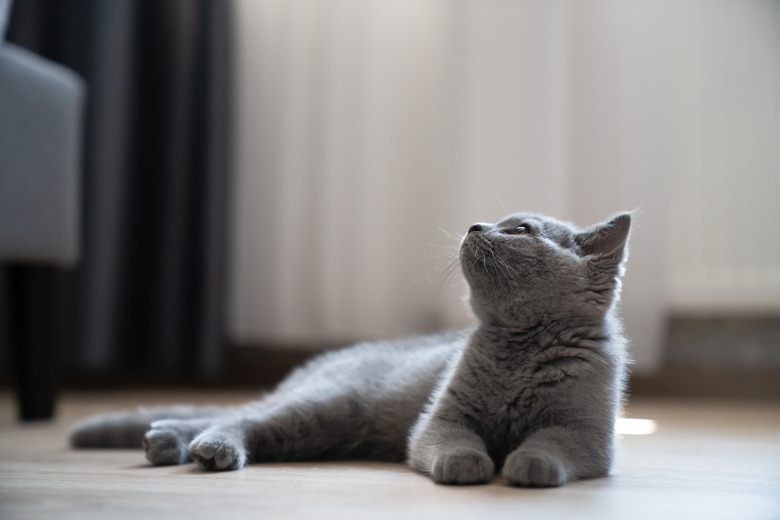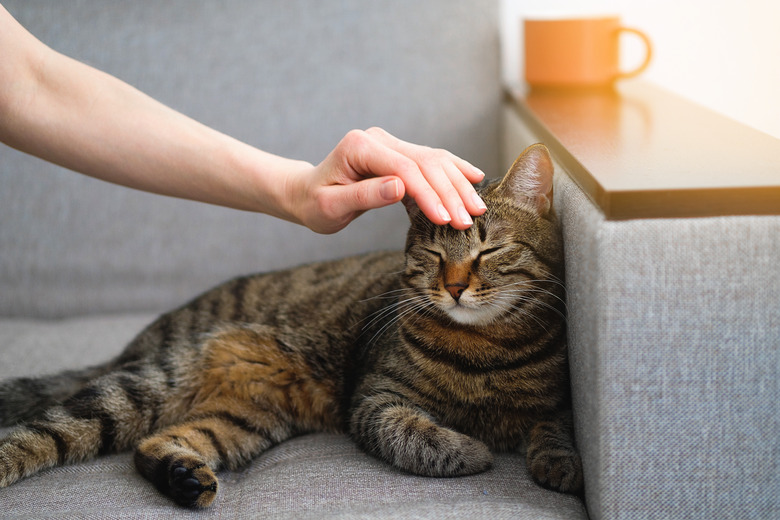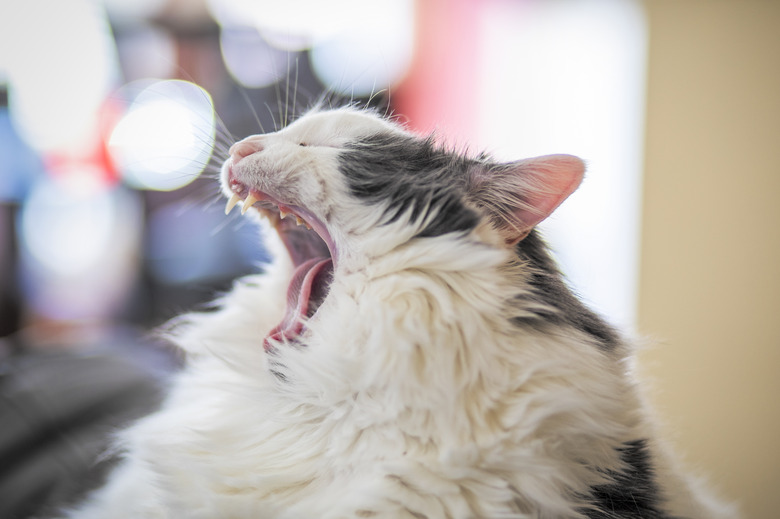Why Is My Cat Open Mouth Breathing?
Dogs are known for panting, but cats shouldn't be heavy breathing. Cats are obligate nose-breathers, meaning that open mouth breathing in felines is almost never normal and a sign of some sort of problem or respiratory distress. Cat open mouth breathing or panting can be a sign of a serious medical condition.
Why is my cat breathing with their mouth open?
Why is my cat breathing with their mouth open?
Felines typically breathe through their nose with a smooth, even inhale and exhale. Air travels through the windpipe and into the lungs, where oxygen enters the blood stream. Carbon dioxide waste leaves the blood stream and is exhaled through the nose. Anything from extreme exercise to a lung disorder can interrupt this process and cause a cat to breathe with their mouth open. You can get some clues from the causes listed below, but it is important to visit your veterinarian for veterinarian for an explanation of the trouble breathing.
Exercise and stress
After strenuous exercise, cats pant or breathe through their mouth. This is one instance in which open-mouth breathing in a cat might be normal. Panting allows your cat to cool off through the evaporation of moisture through the tongue, mouth, and lungs. If their breathing appears labored or your cat appears anxious, consult a veterinarian, as your cat may be experiencing heatstroke.
Some cats also breathe with an open mouth if they feel stressed or frightened. If you suspect this is the reason for your cat's open-mouth breathing, remove the source of stress or remove your cat from the stressful environment if possible.
Feline asthma
Feline asthma is caused by inflammation of the airway or passageways in the lungs. During an asthma attack, a cat may breathe through their mouth, cough, wheeze, and extend their neck and hunch their shoulders. Their lips and tongue might turn blue (also known as cyanosis), as they are not getting enough oxygen. Asthma in cats is primarily caused by an allergic reaction. The condition can be intensified by stress, obesity, or a heart condition.
Pleural effusion
Pleural effusion is a condition in which fluid accumulates around the lungs. The fluid compresses the lungs, preventing them from expanding and allowing sufficient air to enter. Signs of pleural effusion include open mouth, labored and rapid breathing, lethargy, loss of appetite, and blue skin and mucous membranes. Pleural effusion has many possible causes, including lung infections, cancer, heart failure, abnormal lymph drainage, and pulmonary blood clots.
Pulmonary edema
Pulmonary edema means fluid buildup within the lungs (as opposed to the above condition where the fluid accumulates around the lungs). The most common cause of pulmonary edema in cats is congestive heart failure, which occurs as a result of heart disease (the most prevalent heart disease among cats is feline hypertrophic cardiomyopathy, or HCM).
Pulmonary edema in cats can also be caused by other less common issues, such as infection, cancer, electrocution, head trauma, and strangulation. Signs of fluid buildup within the lungs include open-mouth breathing, wheezing, coughing, and rapid breathing. You might also notice increased effort in your cat's breathing, which usually appears similar to "heaving" in the abdominal area. Your cat might also be restless or reluctant to lay down.
Upper respiratory infections
In addition to open-mouth breathing, cats with upper respiratory infections will have symptoms such as sneezing, congestion, cough, fever, runny nose, and lethargy. Most upper respiratory infections are viral infections, such as the highly contagious feline calicivirus and feline herpes viruses. Bacterial infections, including chlamydia and Bordetella, also cause upper respiratory infections. These ailments are often highly contagious; cats should be isolated as part of their medical treatment.
Heatstroke
Panting can also be a sign of heatstroke in cats. While dogs normally pant to cool themselves down, cats don't need to do this unless their body temperature is dangerously high. If your cat has been exposed to high temperatures and is continuously open-mouth breathing, breathing rapidly, drooling, vomiting, or stumbling, they might be experiencing an emergency known as heatstroke.
What should I do when my cat is open-mouth breathing?
What should I do when my cat is open-mouth breathing?
If your cat is open-mouth breathing and they haven't been exercising heavily (or even if they have and the open-mouth breathing does not stop after they rest), this could be an emergency, so you'll need to get your cat to a vet visit as soon as possible. Your cat will need to see the veterinarian within hours, not days, so if your regular veterinarian is not available, seek out an emergency veterinary hospital.
During the emergency exam, the veterinarian will do a complete physical and perform diagnostics that might include chest X-rays, bloodwork, and an echocardiogram. They might also place your cat into an oxygen chamber to help them breathe more comfortably. In the meantime, try to keep your cat calm. You can place them in a dark, quiet room to help them calm down. Monitor them constantly to make sure their open-mouth breathing or other breathing problems don't worsen. If you suspect heatstroke, you can try to cool down your cat by wetting them with room temperature water, but they will still need emergency veterinary attention right away.
The bottom line
The bottom line
Cats usually breathe from their nose only, so any time your cat is open-mouth breathing, it is cause for concern. The only exceptions might be if your cat has just been exercising strenuously or if they are extremely stressed. However, the open-mouth breathing should resolve itself quickly once your cat is no longer exerted or stressed. Otherwise, any instance of open-mouth breathing can point to a serious health issue, like asthma, life-threatening lung or heart problems, or an infection. If you notice that your cat is panting or experiencing any other difficulty breathing (known as dyspnea), keep them calm and bring them to a DVM (veterinarian) right away. Your cat's health depends on it.


